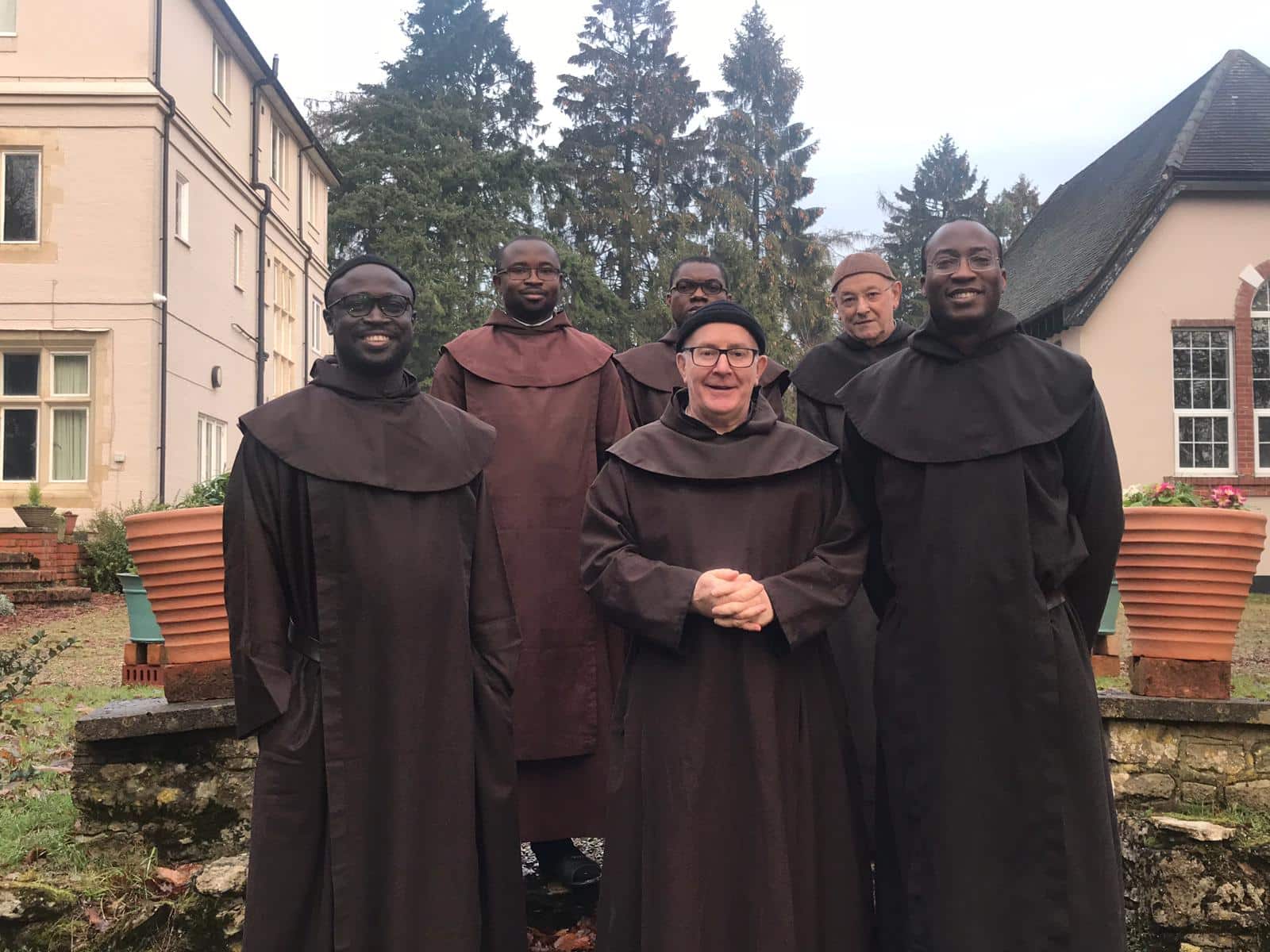In some of Oxfordshire's most beautiful countryside there is a Discalced Carmelite community continuing a charism that dates back to the twelfth century, when St. Teresa of Ávila founded the Discalced order in 16th-century Catholic Spain.
While helping maintain a tradition stretching back to 1562, the Boars Hill Discalced Carmelites are admittedly a comparatively new community. Arriving in 1958, they created a new Mount Carmel at Chilswell House, formerly owned by Poet Laureate Robert Bridges.
The brothers quickly began giving retreats in their great spiritual tradition, and the Carmel became a place where the faithful could come to rest and receive spiritual direction.
While monastic communities have been on a downward trend, in terms of vocations and impact, across much of the Western world for decades, Boars Hill is very much an exception to this. Over the past six years, the community has grown significantly, with an influx of vocations.
The average age of the brothers is 45, and this year they will welcome three more brothers to begin their novitiate, with the youngest just 19. At the moment, a number of the brothers are from Africa and India. Since this growth, the community has expanded their offerings by developing structured study courses centred around the teachings of the great Saints of the Carmelite spiritual tradition.
In 2019, the community developed a course – the first of its kind – that not only provided spiritual direction but also taught participants how to be spiritual directors in the Carmelite charism.
Participants from all over the world, including priests, religious, and laypeople, take part in the two-year course, which involves visiting the centre twice yearly for "intensives" and continuing their guided spiritual studies at home. Graduation is held in Ávila to honour St. Teresa. Due to a surge in participants from North America, the brothers now regularly visit the United States to make courses available for the large numbers wanting to partake.
During the intensives, participants are first introduced to the contemplative rhythm of Carmelite life, joining the brothers for the liturgy of the hours, prolonged meditative periods of silence, as well as recreation and rest. They also become familiar with St. Teresa of Ávila’s idea that prayer should become friendship and intimacy with God. Once this rhythm is established, studies commence. In addition to the brothers, experts in Carmelite spirituality from around the world give lectures both online and in person.
What is perhaps most surprising is that the program attracts not only international participants but also participants from different Christian traditions, not just Catholic.
“We have evangelicals, Anglicans, and Pentecostals start the program, and by the time it ends, they become Catholic," says Fr. Alexander Ezechukwu, Prior of the community, tells the <em>Catholic Herald</em>. “But we do not push this on anyone. Our website clearly states that it is ecumenical and is open to everyone, and also that it is authentically Catholic without compromise. So, we are open to anyone who wants to drink from this source.”
Last month, the community announced the development of the Boars Hill site to provide modern facilities for more people to receive spiritual formation and attend the community's retreats.
“We feel called to develop the Centre into a beacon of Carmelite spirituality, carefully applied to the needs of our world today,” Fr. Alexander says. “To be a place of prayer, research, and training, equipped with effective means to promote the renewal and growth of spiritual life in different contemporary arenas, drawing on the riches of the centuries-old Carmelite tradition in which we find light, wisdom, and joy to pass on to others. It is the Carmelite way."
He continues: "Listen to our greatest foundress: ‘In this house...all must be friends, all must be loved, all must be held dear, all must be helped.’”
John Radice, an experienced church architect, will lead the project, and has assembled a team including designers Leap Architects, who have designed the new development to reflect the charisms of the Carmelite Order.
Entering the quadrant, visitors will go through the entrance building with the conference hall facing them to facilitate teaching. On the left is the refectory building, to enable hospitality, and on the south side is the chapel, so the community can worship. There will also be twelve ensuite guest rooms added to the site, which will enable the community to continue and extend their invitations for retreats and courses.
The project vision is to enhance the landscape of the Carmel so that it continues being a place of beauty and an oasis of serenity and stillness, nurturing prayerful and formative companionship with God. The site's 17 acres of open meadows and mature woodland will remain protected, offering retreatants an ideal setting for quiet prayer and meditation.
It is hugely encouraging and refreshing to see a monastery extend their work and facilities when so many others are closing their doors. In Spain, the very land of St. Teresa, that "greatest" foundress of the Discalced Carmelite tradition, it is estimated that some twenty monasteries close per year.
And yet in this small village in England, a country which had outlawed monasticism some thirty years before St Teresa began her good work, the Carmelite tradition and the monastic spirit are still thriving. <br><br><em>Photo: Screenshot from <a href="https://www.carmelite.uk.net/"><mark style="background-color:rgba(0, 0, 0, 0)" class="has-inline-color has-vivid-cyan-blue-color">https://www.carmelite.uk.net/</mark></a>.</em>
<strong>Those interested in finding about more about Boars Hill or who would like to support their work are invited to visit: <a href="https://www.carmelite.uk.net/isaiah-4319/"><mark style="background-color:rgba(0, 0, 0, 0)" class="has-inline-color has-vivid-cyan-blue-color">https://www.carmelite.uk.net/isaiah-4319/</mark></a>.</strong>



